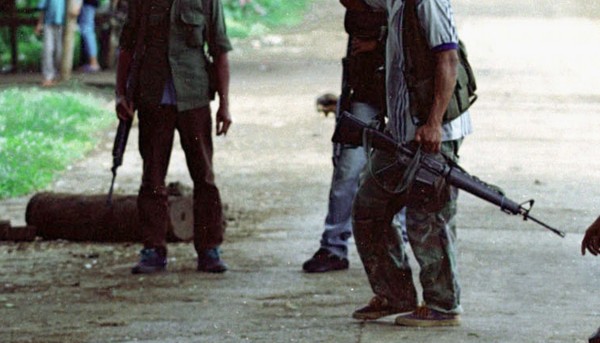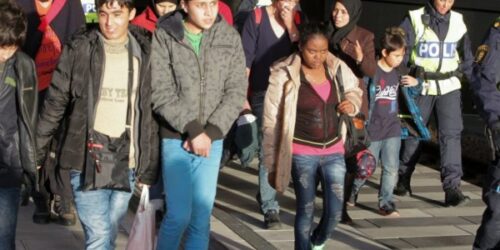Confronting Brutality: Abu Sayyaf’s Grisly Act in the Philippines
The global landscape has witnessed a surge in violent acts perpetrated by extremist groups affiliated with ISIS, creating an atmosphere of fear and concern. In a chilling incident on June 13, 2016, one of Abu Sayyaf’s operatives beheaded Canadian national Robert Hall, leaving the world shocked and horrified. This incident underscores the urgent need to address the complex challenges posed by such extremist groups and to work toward a safer and more peaceful world.

The Gruesome Act of Violence
On that fateful day in 2016, a horrific act unfolded as an operative of Abu Sayyaf, an ISIS-affiliated extremist group, beheaded Canadian citizen Robert Hall. The execution, captured in a graphic video, sent shockwaves globally, highlighting the brutality that can be carried out by such groups in pursuit of their sinister agendas. This disturbing incident brought to light the dire consequences of extremism and the need for concerted efforts to prevent such atrocities.
The Menace of Extremist Affiliations
Abu Sayyaf’s affiliation with ISIS showcases the alarming spread of extremist ideologies and their collaboration across borders. These affiliations often result in a surge of violence and destabilization in affected regions. The execution of Robert Hall is a stark reminder that these groups not only pose a threat to national security but also undermine global stability and human rights.
Facing the Challenge: Countering Extremism
- International Cooperation: The fight against extremist groups demands collaborative efforts among nations to share intelligence, resources, and strategies to effectively counter their influence.
- Counter-radicalization Programs: Initiatives that focus on preventing radicalization through education, community engagement, and promoting critical thinking are essential in curbing the recruitment of new members.
- Addressing Socio-economic Factors: Extremist groups often exploit economic disparities and social grievances. By addressing these root causes, societies can diminish the appeal of radical ideologies.
- Promoting Interfaith Dialogue: Encouraging open dialogue among different faiths and cultures can foster mutual understanding, dispel misconceptions, and build bridges of tolerance.
- Humanitarian Aid and Rehabilitation: Offering support and rehabilitation to individuals who have been coerced into extremist activities can aid their reintegration into society and prevent recidivism.
The beheading of Robert Hall by an Abu Sayyaf operative serves as a grim reminder of the ruthless violence that extremist groups are capable of perpetrating. This incident underscores the urgency of international collaboration to address the threat of extremism, both regionally and globally. By implementing comprehensive strategies that combine counter-radicalization efforts, socio-economic development, and interfaith dialogue, nations can work together to create a world that is more resilient against the influence of such groups. It is only through unity, understanding, and unwavering commitment to human rights that societies can overcome the menace of extremism and build a safer future for all.



